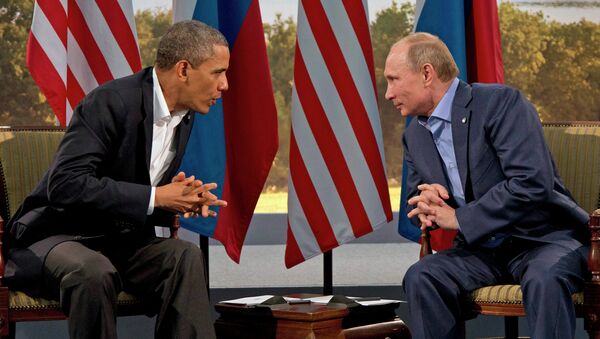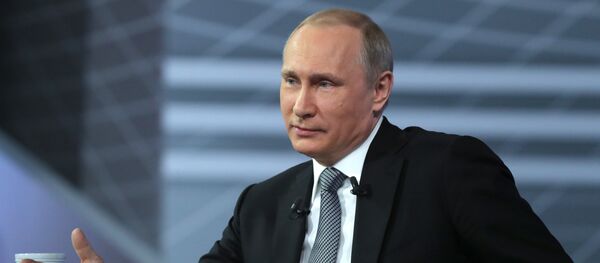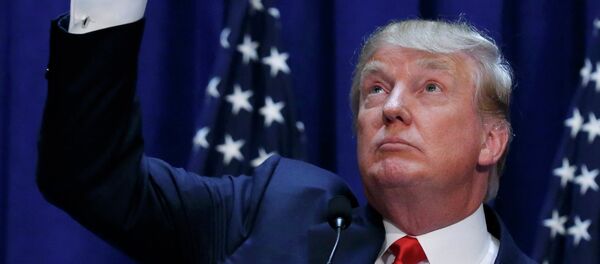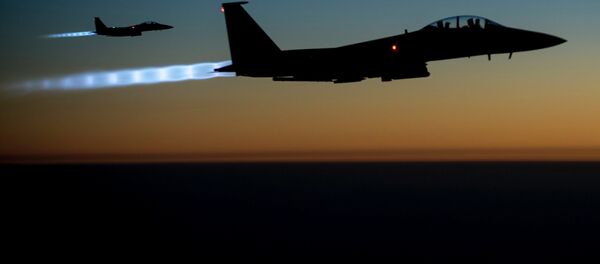Fifteen years ago, Washington had a chance to establish mutually beneficial working relations with Moscow.
"There was a brief time 15 years ago when the Washington and Moscow had a real opportunity to establish a more durable partnership on security issues," Dr. Andrew C. Kuchins, a research professor at the Center for Eurasian, Russian, and East European Studies (CERES) at Georgetown University, writes in his op-ed for the Washington Post.
Stephen F. Cohen, professor emeritus of Russian studies at New York University and Princeton University, characterized US-Russian relations immediately after 9/11 in his May interview on The John Batchelor Show in much the same way.
"After 9/11 he [Vladimir Putin] lent to George W. Bush military assets, intelligence, transit routes he had to Afghanistan and greatly helped the American land war against the Taliban. Putin's assistance saved hundreds, maybe thousands of American lives," Cohen highlighted.
However, the Bush administration was not willing to deal with Russia as an equal partner.
"Within months of Russia's cooperation in Afghanistan, Washington announced the US withdrawal from the ABM [Anti-Ballistic Missile] Treaty. And the US announced that NATO would bring in the Baltic States in 2004," Kuchins stressed.
The American academic remarked that then-president George W. Bush "wanted to improve ties with Russia," while Secretary of Defense Donald H. Rumsfeld and other senior officials strongly opposed Russo-American cooperation.
Kuchins cited an unnamed ex-official who said that "Rumsfeld saw Russia as a second-rate power; not worth a hill of beans."
However, according to Jeffrey Tayler of The Atlantic, it was "NATO's continued European expansion" and bombing of Russia's historical ally Yugoslavia in 1999 that "marked the beginning of Moscow's ever-more troubled relations with the West."
Needless to say, the US-backed "Orange Revolution" in Ukraine in 2004 as well as Georgian president Mikheil Saakashvili's aggressive military actions against South Ossetia in 2008 amid the Beijing Summer Olympics, added insult to injury. Not only did the invasion of South Ossetia kick off with tacit approval from the Bush administration, but then-presidential candidate John McCain, whom Bush had endorsed as his replacement, was especially fervent in his support for Saakashvili's narrative that Russia had invaded, proclaiming "today we are all Georgians."
The experts agree that the US-led NATO campaign against Libyan leader Muammar Gaddafi in 2011 became the last straw.
History has seemingly repeated itself in Syria, where the situation is hanging in the balance. Regardless of Russia's repeated efforts to team up with Washington to jointly defeat Daesh (ISIS/ISIL), the US "party of war" remains suspicious about the prospects for US-Russian collaboration.
Stanislav Tarasov, Russian expert and head of the Middle East-Caucasus think tank, assumed that the Pentagon is deliberately trying to undermine the US-Russian agreement on Syria.
"It was indicated by the bombardment of the Syrian Arab Army's positions [near Deir ez-Zor] and [the US'] accusations that Russia had attacked the humanitarian convoy [near Aleppo]," Tarasov told the Russian online newspaper Vzglyad.
"One should realize that the US State Department's head [John] Kerry is a representative of the outgoing administration and it is a matter of principle for them to reach at least a tentative agreement on Syria before the election; the Pentagon, for its part, is trying to ruin the State Department's plans," the expert believes.
While the Pentagon and the US State Department are busy with their covert struggle, the situation is getting worse in Syria.
"The road to American national security runs through Moscow," as Professor Cohen emphasized in one of his interviews on the John Batchelor Show.
"So, to the extent we demonize and reject Putin, we are systematically undermining our national security, whether we are talking about the nuclear proliferation, terrorism, the environment, the international economy — whichever subject, this demonization of Putin is a systematic disregard of American national security," the American professor warned.




